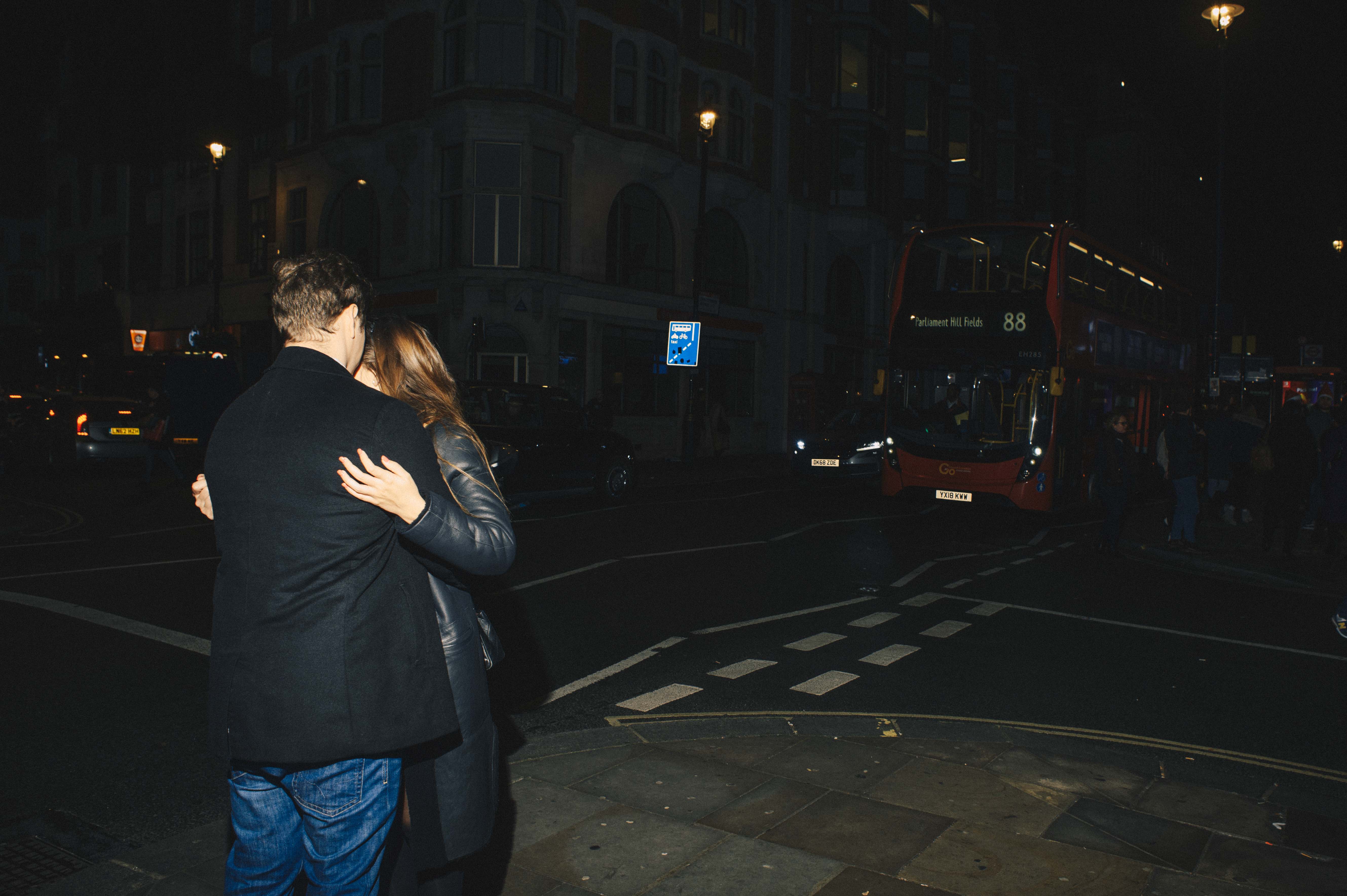British Drinking Culture, Meet Cost of Living Crisis
January 3, 2023 Off By Lauren O'NeillIt is Saturday night in central London and I meet Jason, 23, Declan, 22, and Jamie, 22 on a busy pavement outside a pub, downing Coronas they bought from the off-license next door. They’ve been out since 2PM – it’s Jamie’s girlfriend’s birthday so they went to bottomless brunch and then karaoke – and the day is beginning to take its toll on their bank balances, so shop beers it is.
Like most people in the UK during the cost of living crisis (and what a miserable, hollow little phrase “cost of living” is), they feel that going out has become more expensive, in line with everything else. Jason tells me he’s still “grateful” to feel insulated from the worst of the current circumstances, because he lives at home with his parents, like approximately 42 percent of young people aged between 15 and 35. This in itself is telling: In 1996, this figure stood at 36 percent.
Still, the three friends are seeing the price hikes everywhere – they give a very entertaining and impressively exhaustive rundown of the way the cost of a Tesco meal deal has skyrocketed, the long and short of which is: “it’s fucked”, including nights out. “You notice the drink prices going up. You’ve just got to firm it,” Jamie says.
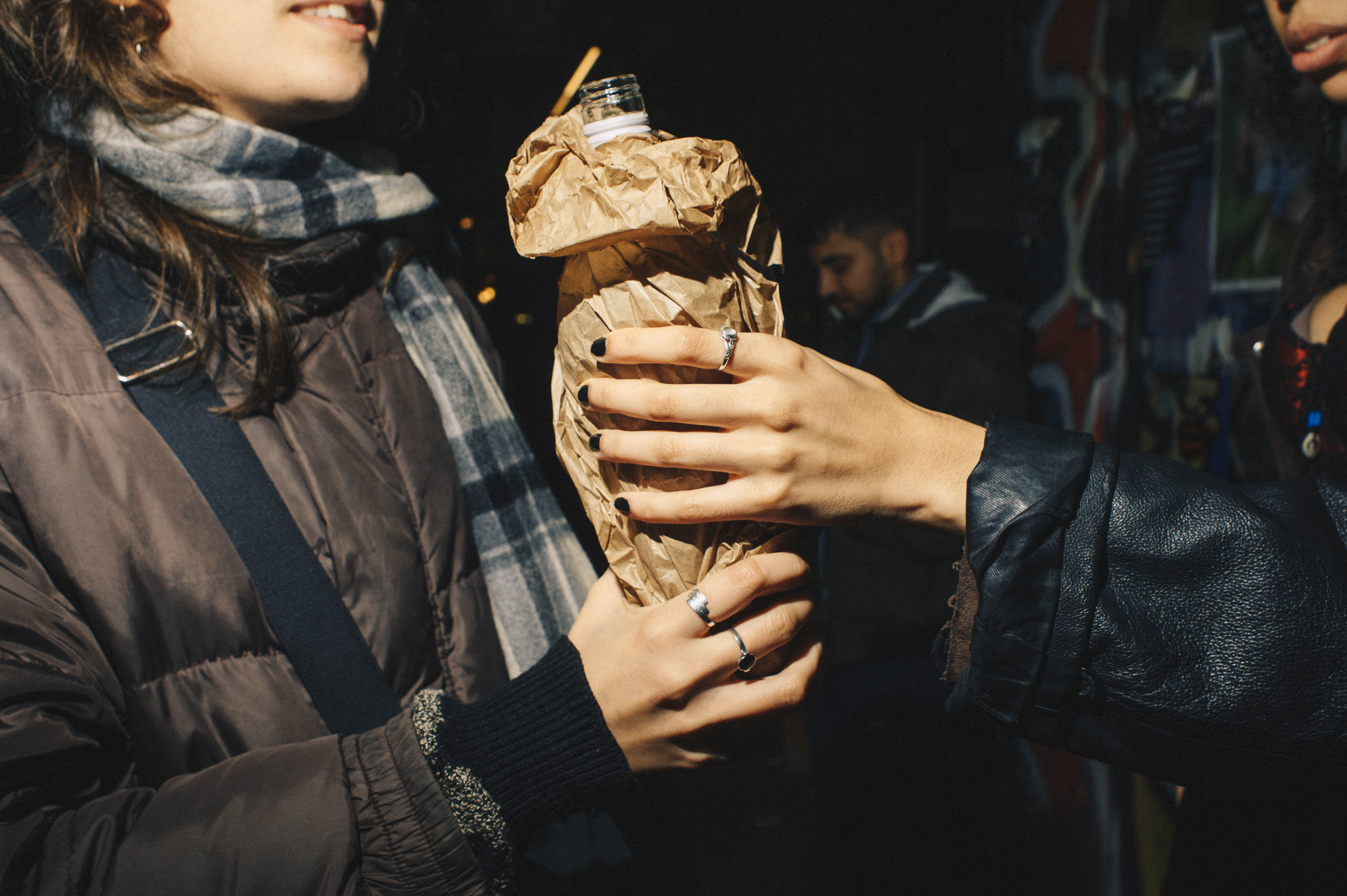
Since energy costs rose in October, with wages remaining largely stagnant for many – the current strikes across the transport, education, public service, healthcare, and legal sectors are proof enough of that – most of us are experiencing the financial impact in at least some area of life. For many, it’s meant that expensive pastimes like going out drinking have had to fall to the wayside, while pubs and bars are struggling like everyone else too, having to bring up prices to cover their own overheads.
I’m told by Martin Farmer, the operations director of Aberdeen’s Monkey Bars group, for example, that the group’s businesses have “had to increase pricing on everything. In one of the bars, we’ve gone from 16p a unit to 80p for energy prices, that’s fivefold. We’re going to be looking at ten grand for our December energy price”. Where London venues are concerned, in September, Mayor Sadiq Khan has stated that the cost of living crisis could be “fatal” for many of the capital’s hospitality businesses.
The received wisdom is that young people – particularly Gen Z – aren’t drinking as much as their older counterparts, and recent stats from the OECD show that the UK is no longer one of the ten heaviest drinking countries in Europe. But considering that “getting absolutely battered” is all but an unofficial national hobby of millions in the UK, I’ve been curious as to what impact the economic situation has so far had on this time-honoured tradition, particularly in the first year post-lockdown.
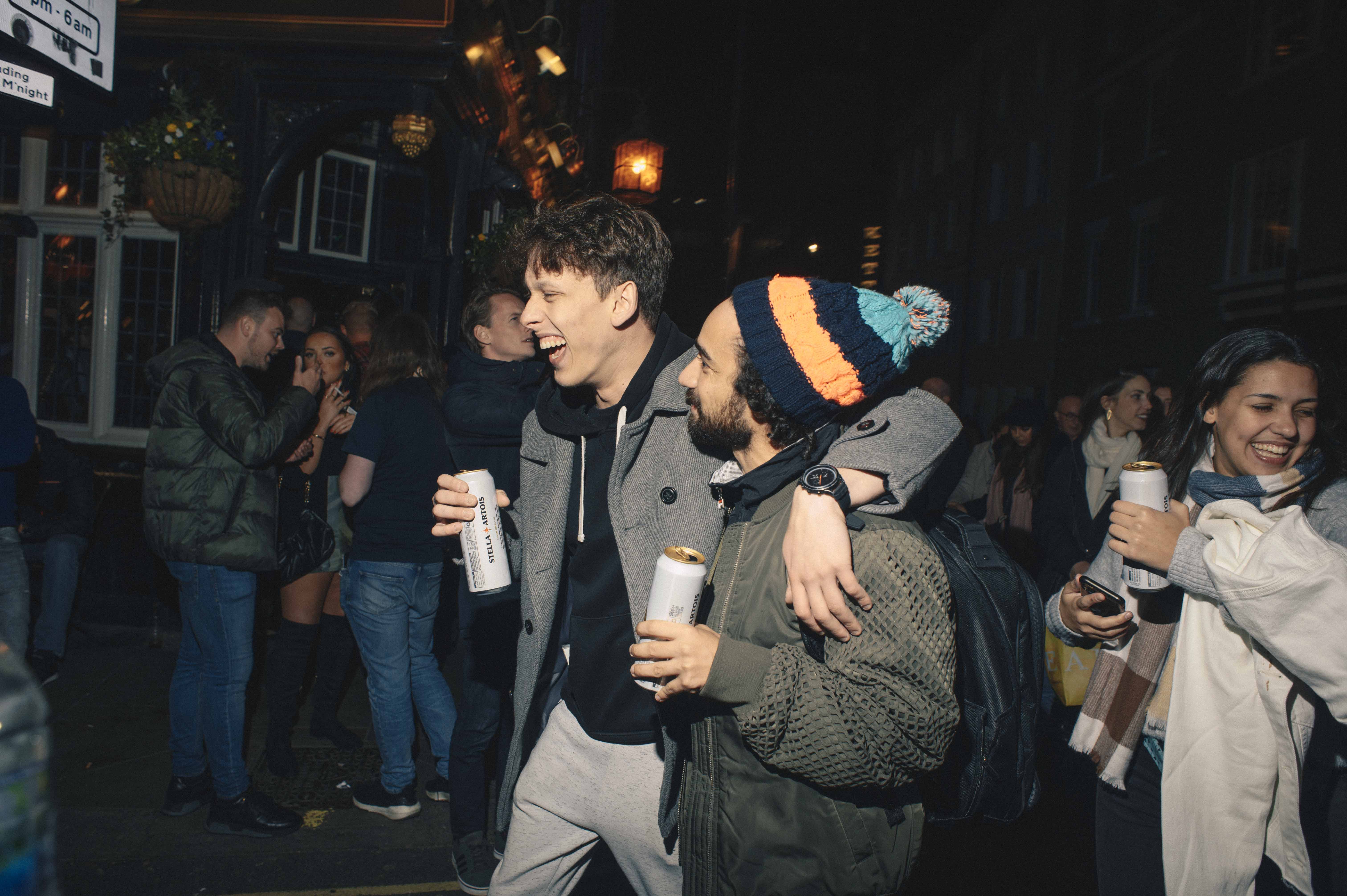
So a few Saturdays ago, I decided to conduct what I believe is scientifically known as a “vibe check”. I hit up high streets in south London’s Clapham (notoriously the home of many chain bars, and many, many rugby lads in fancy dress) and Soho to ask punters how the cost of living crisis is affecting the way they go boozing, and whether in times of hardship – perhaps especially in times of hardship – there is anything at all that can get in between Brits and their love of drinking.
The answer to that second question, in short, is basically “absolutely not”. In general, while everyone I speak to says they’re seeing costs rising, it isn’t putting them off going out. In the words of Becca, 23, who is with her uni mates Jessica, 23, and Bailey, 24: “If I’m honest I just tap my card. If it’s £40 for a Pornstar, I’m like ‘OK!’”
I begin the night in Clapham where I meet Yushy, the photographer who is to accompany me as I conduct my experiment, at O’Neill’s. Inside it’s business as usual: inflatable, Guinness-branded rugby goalpost placed in an incredibly inconvenient thoroughfare, huge screens playing sports, girlies dancing to “Toxic” by Britney while a fruit machine glows behind them (there could be an apocalypse-level event and there would still be girlies dancing to “Toxic” in Clapham O’Neill’s – give them footballers’ wages).
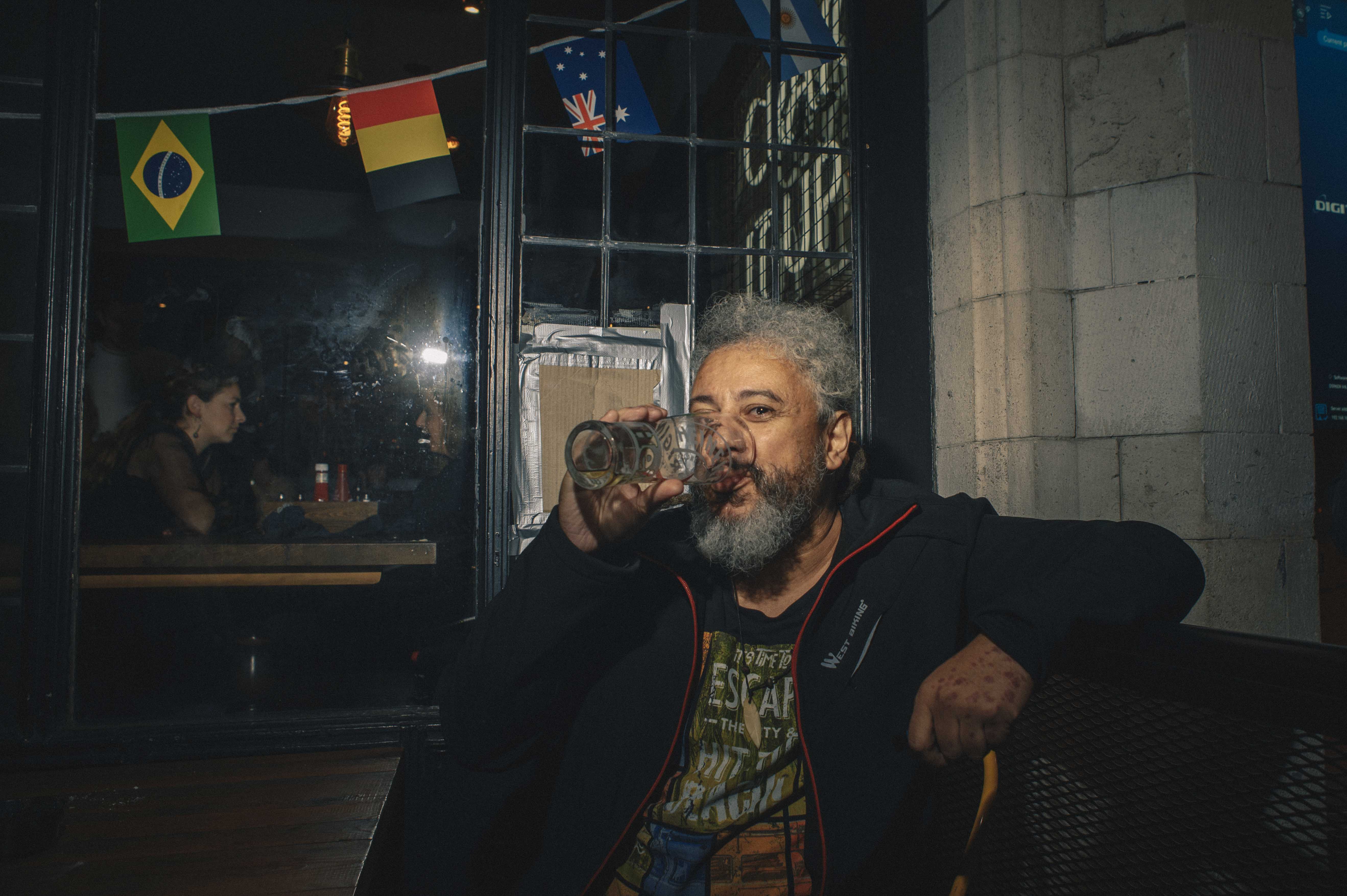
Outside, I get chatting to Alex, 28, and Joe, also 28. When I ask about the rising prices of basically everything, Alex tells me: “I don’t think it affects my flatmates as much as me, but if I want to go out I’ll go out. And I’ll plan – I’ll say, ‘I’m going to spend £100 tonight.’” Did he budget like this in the past? “Not as much,” he tells me. Fabian, 47, having a pint alone in the smoking area, chimes in. He remembers that “20 years ago, a pint cost £1. I used to go out with £20 and get fucked – now it costs £20 just to get in!”.
The recent price hikes haven’t meant that these guys don’t want to go out, but they’re definitely watching what they’re spending more. “Tonight for example, we’re having a big uni boys reunion and normally it would be like, ‘Fuck it, who cares, we’ll get rounds in, whatever,’” Joe says. Now, however, doing so worries him a little more than it used to. Like most people, he’s also very clear on the source of everyone’s tightening purse strings: “People say, ‘The government isn’t there to solve all your problems.’ But it’s like, ‘You’re the government.’ That’s literally what we pay you to do!”
Joe isn’t the only one who points out these structural problems. Later on in Soho, where the streets are still a reliably rammed mix of tourists, revellers, and whoever it is that pays to go on those weird on-land pedalo things, I meet Aaron, 29, and Louise, 32, outside a corner pub. Of the rising prices on a night out, Louise tells me: “You’re noticing it because everything else has increased but your pay hasn’t increased.”
For Aaron, this has meant he goes out a bit less. “I’d probably have gone out every weekend before,” he tells me. Ultimately, though, he’s not completely deterred, “because you don’t want to miss out on your social life, do you?”
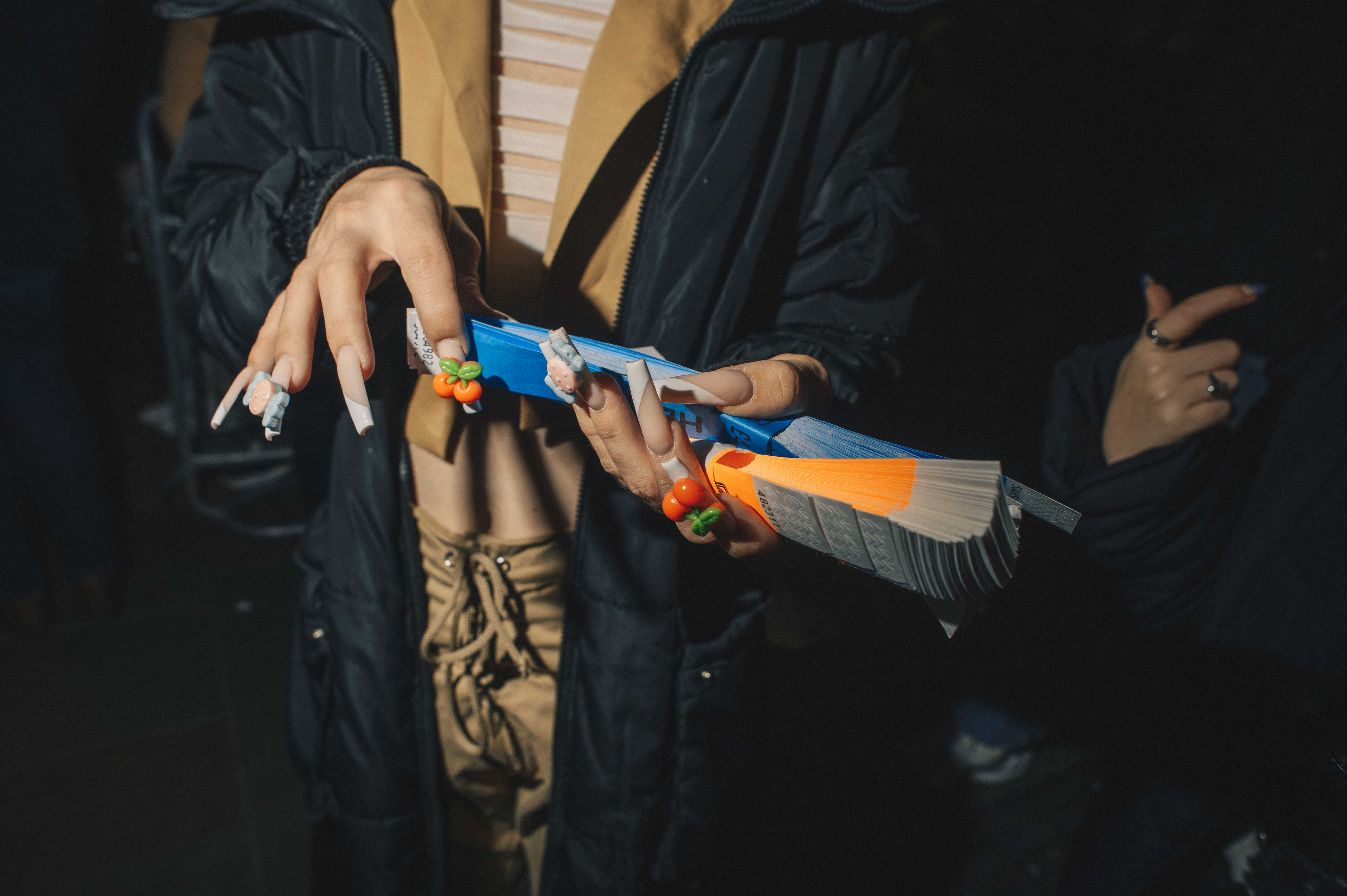
One trend I hear about a few times over the course of the night is the fact that people are more interested in events like bottomless brunches – they save money – and a few of the groups I chat to have been to one earlier on. In Clapham, Bailey tells me that when they were younger, she and her friends “didn’t used to go to bottomless. We used to go to Slug and Lettuce and get drinks and drinks and drinks, but now I think bottomless is a better price”. In Soho, Jason explains that it’s a good option because “you can get as many drinks as you want for a certain amount of time. It was £40 for two hours”.
The upfront nature of the cost is part of what attracts people to set menu events. Shiraz (who introduces himself only as Shiraz, and when that’s your name you’re entitled to be mononymous) is the events and marketing manager for a group of venues that includes Clapham’s Tropix and Soul Lounge, and Fitzrovia’s Sican, all of which serve brunches that cost between £40 and £55 for two-hour sittings. He explains over the phone that people like coming to bottomless brunch because – while it isn’t cheap at around the £50 mark – “at least you know what you’re paying”.
“What’s really popular,” he continues, “even if people don’t do brunch, is the set menus with set drinks. People want to know what they’re spending on, because they want to budget themselves. They want to know, if I’m going out for my friend’s birthday, I’m going to bring £50 with me.”
Sican is the newest of the venues, and the group has noticed that it’s brunch that got off the ground there first. “We found the only thing that was fully booked straight away was bottomless brunch,” Shiraz says. The brunches have been so successful for the venues in general that they have introduced even more sittings. At Soul Lounge, he tells me, “we do bottomless brunch all night long. Now we do a bottomless brunch at 11PM. It’s the most popular slot now, people love doing that.”
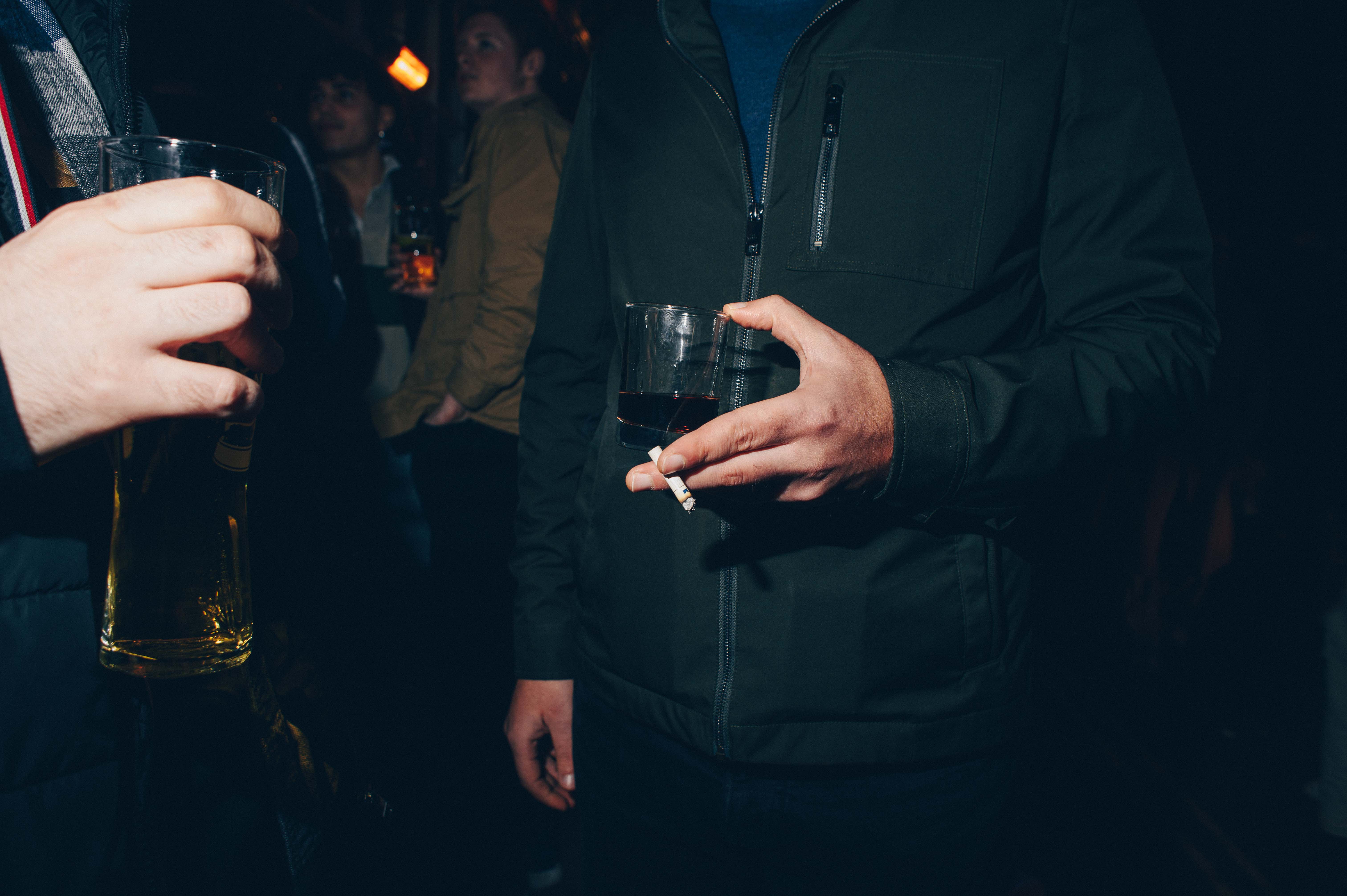
The group is one of many that has adapted as habits change. At the Monkey Bars venues, Farmer explains that more staff have been used on busy nights so customers feel like they’re getting a smoother experience for their money, as well as introducing live music, again to enhance the night.
As such, it’s not all doom and gloom for drinking venues – it’s a case of changing along with how people spend and what they want from going out. And of course, when there are millions in the UK who have been pushed into poverty by this crisis – genuinely choosing between heating and eating – the effect on the ability to go out drinking is unimportant in the grand scheme of things. Pretty much everyone I speak to stresses that they think people in cities other than London will be impacted by the crisis differently, and crucially that there are many who have been hit much more severely than them.
At the same time, that phrase, “cost of living”, troubles me. Living is different to merely surviving, and one of life’s great pleasures is going out and having a drink, or otherwise simply having fun, with your loved ones. After Lula was elected president of Brazil in October, a campaign speech in which he spoke of “the right to to grill some barbecue for our families at the weekend, and buy a picanha with a nice piece of fat dipped in flour, and a nice cool beer” went viral because it resonated with so many the world over. These small glimmers of joy, I think, should indeed be enshrined as rights: as workers and taxpayers, we deserve at least that.
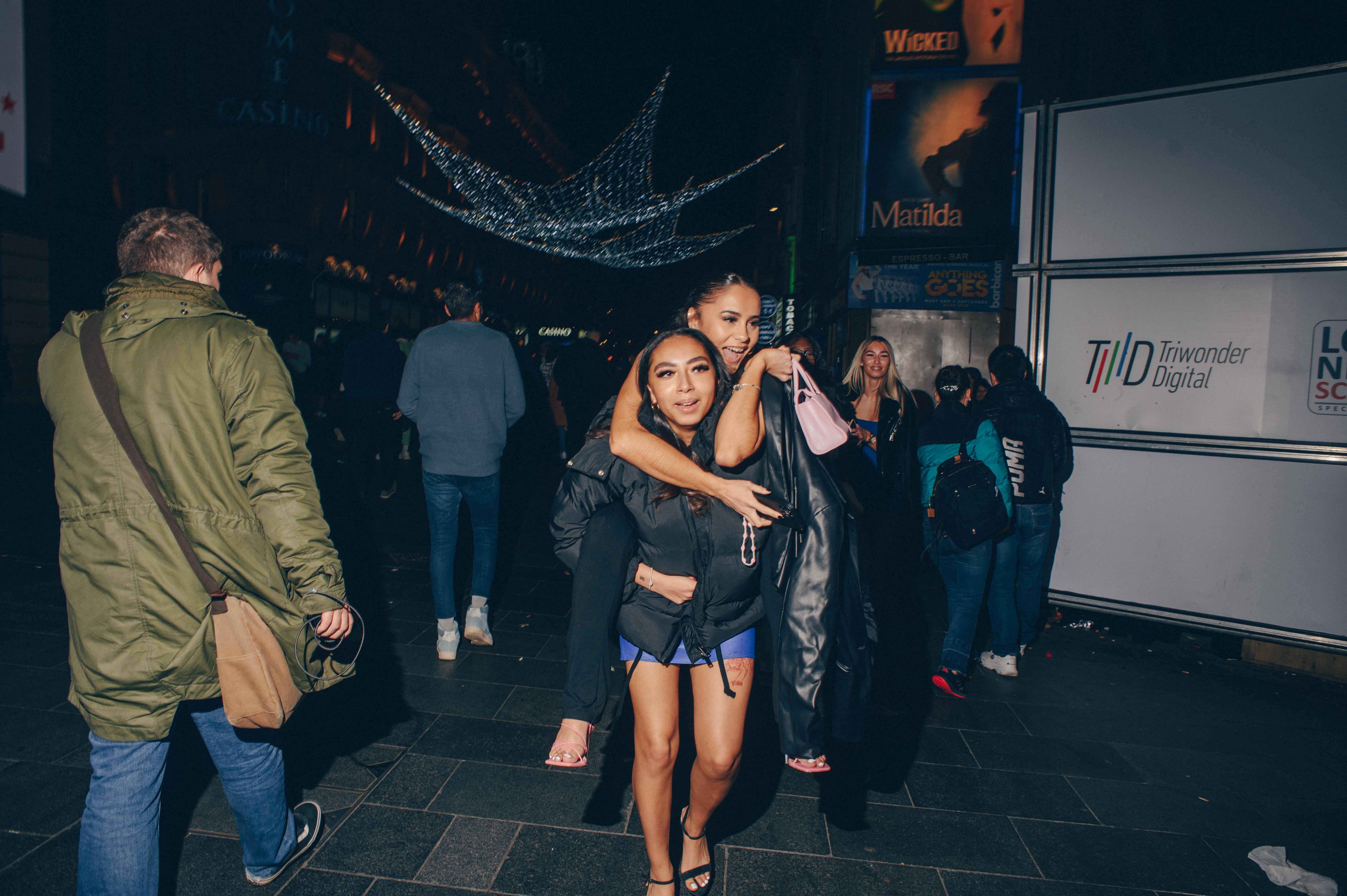
When this isn’t offered to us, regardless (and often actually because) of the political climate, it follows that people will simply claim back what relief they can. As my night draws to a close, Old Compton Street heaving like its pavements themselves are alive, Yushy and I make our way through the throng and meet some who think that, actually, people now seem to be going out more. Viraj, 32, and Pritesh, 27, are two of them.
“The cost of living is going up but because we’ve been in a lockdown, that trumps it. People want to catch up on the last two years that they’ve lost,” Pritesh tells me.
Viraj, helpfully, seems to sum up everything I’ve heard tonight best: “People want to get out of their mindset, so they’re going out and getting drunk and spending money,” he reasons thoughtfully, a bottle of beer held lightly in his hand. “If people want to get pissed,” he says, “they’ll get pissed.”
